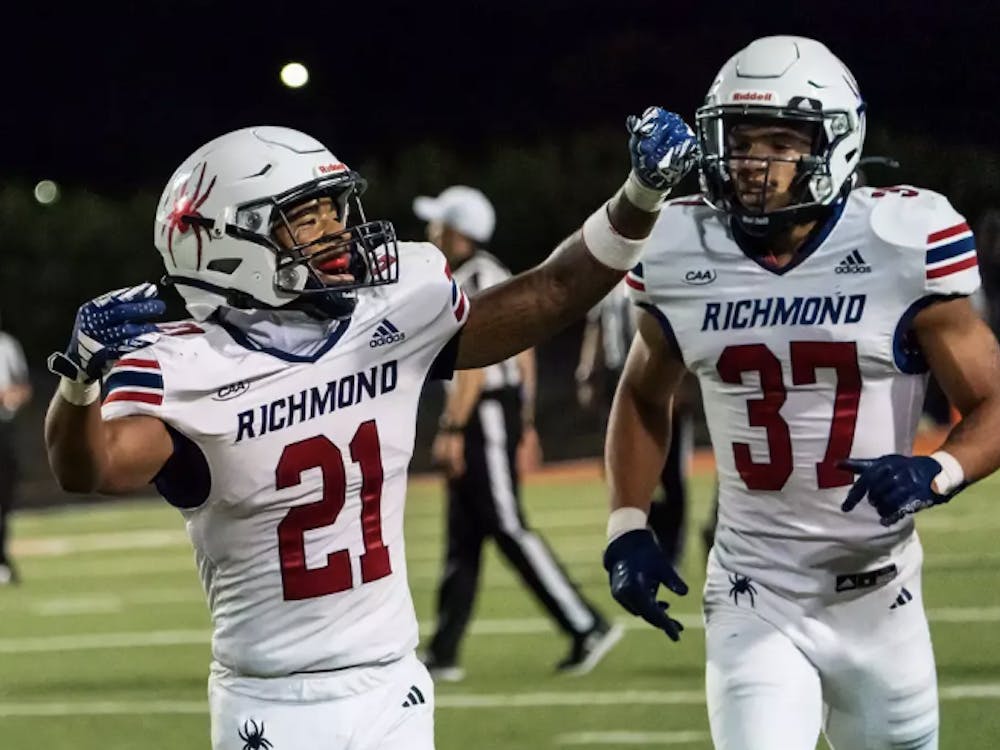The lights were dim when one of our participants walked into our makeshift photography studio. He sat on a red vinyl stool and positioned his body toward the camera, ready. We adjusted the lighting to highlight the high and low points of his face and instructed him to either smile or look serious -- the choice was his.
He left the room after we decided on a striking shot of him staring straight into the camera, a stoic look on his face. As he walked out, he ran into our next participant, who told the first that he was not surprised to see him here. In reply, the first student said something that stuck with us: He had been waiting for the chance to speak about what masculinity meant to him.
The Masculinity Dialogues project was created with this exact intention. As part of WILL*’s Gender Action Projects, we were initially partnered up due to a shared interest in toxic masculinity. As we discussed the actions we would like to take, our project shifted towards an examination of masculinities in general.
We displayed the project’s results, a combination of quotes and portraits, in the Tyler Haynes Commons walkway on April 9 and 10. We sought to foster a conversation among male-identifying students, faculty and staff on campus about their notions of a range of masculinities they experienced in their lives.
Today, masculinity is no longer regarded as a monolith. Global brands began tackling representations of masculinities through creative communications as part of a shift in the meaning of masculinity in popular culture. Last year, Gillette responded to the #MeToo movement through a commercial which questioned the meaning of the tagline “The best a man can be,” pitting toxic masculinity against positive displays of masculinities.
Our project engaged the voices of the University of Richmond within this broader conversation. Through this process, we discovered how willing UR men are to engage in conversations about masculinities and their positive expressions.
Unfortunately, when it comes to social settings, guys can feel like they are being silenced.
“I feel like I should be stoic and brave all the time,” one of our student participants, junior Sean Menges, told us. “I feel like I need to mute my emotions towards my male and female friends.”
An environment in which a man feels as if he cannot express his authentic self is not conducive to growth and can only exacerbate displays of toxic masculinities. And yet even invisible barriers are hard to break. It’s necessary to actively break the silence around being vulnerable, and some men on campus agree.
Another student participant, sophomore John Barton, told us, “Instead of acting tough or keeping it in, men should strive to wear their hearts on their sleeves and be more open about their thoughts and feelings with friends and loved ones.”
This positive shift from stifling emotions to proudly displaying them reflects where UR men perceive the change in masculinity must occur.
When men open up to one another, they allow for vulnerability and learn from each other’s experiences. Subsequently, positivity flourishes. Junior Dan Mahoney, president of the Interfraternity Council and another participant, believes this is becoming more common.
Enjoy what you're reading?
Signup for our newsletter
He said: “I feel fortunate to have seen so many of my male peers allow themselves to be emotionally vulnerable and candid with each other. I think this trend is representative of a change in the way that young people think about manhood, and I think it demonstrates a movement away from the notion that ‘real men’ can't have or express emotions.”
Of course, not every member of the university community has been so enthusiastic about our project. We sent the survey to every member of Richmond College (approximately 2,000 students) as well as to a number of faculty members, yet upon the project’s completion it consisted of only 17 quotes and portraits.
Clearly, there was some reluctance to speak out on masculinity. While the responses we did receive were thoughtful and meaningful, the number of responses that were sent in was not wholly representative of every male voice on campus.
Likewise, we noticed some resistance to having portraits associated with the quotes. While many of the men who participated were more than willing to explicate their views on masculinity, when asked to take a portrait, some of them declined, indicating an opposition to being publicly linked to their stances on masculinities.
However, we believe that this will soon change. Men at UR have shown that they want to express themselves and affirm positive masculinities, and we are grateful for the chance to start the conversation. This project may be over, but we hope that men feel empowered to seek their own forums and challenge society’s silence on masculinity. Here’s to our eager participants’ voices being heard at last.
Contact contributors Olivia Podber at olivia.podber and Mary Sanchez at mary.sanchez@richmond.edu.
Support independent student media
You can make a tax-deductible donation by clicking the button below, which takes you to our secure PayPal account. The page is set up to receive contributions in whatever amount you designate. We look forward to using the money we raise to further our mission of providing honest and accurate information to students, faculty, staff, alumni and others in the general public.
Donate Now



